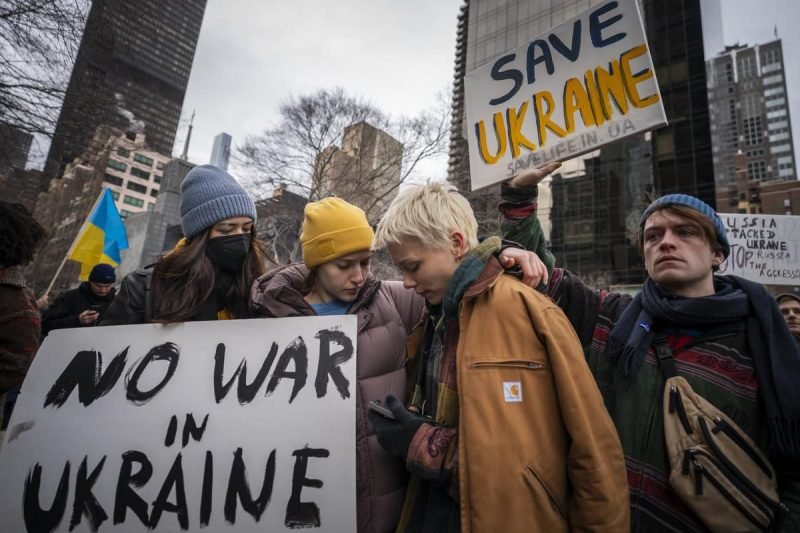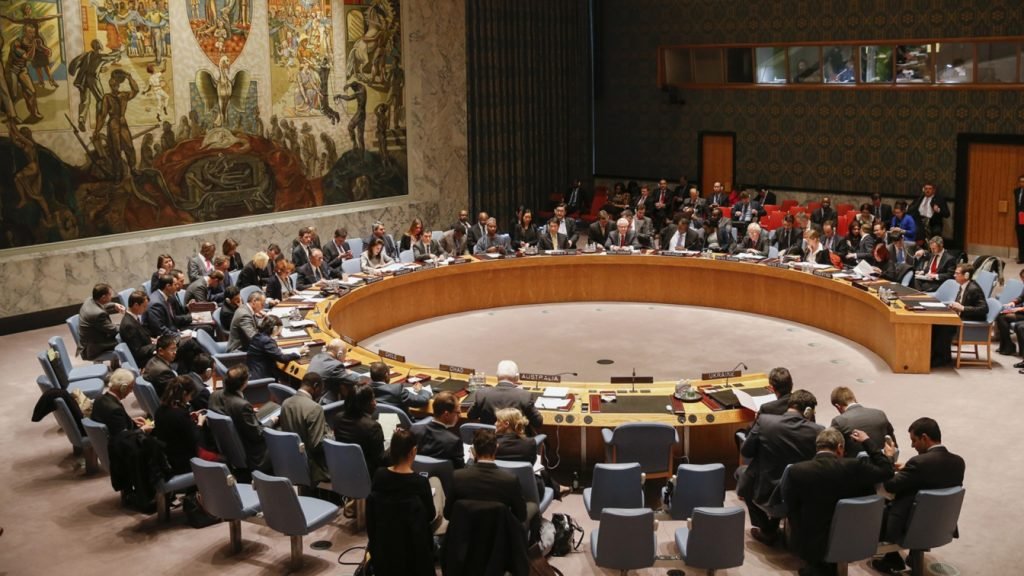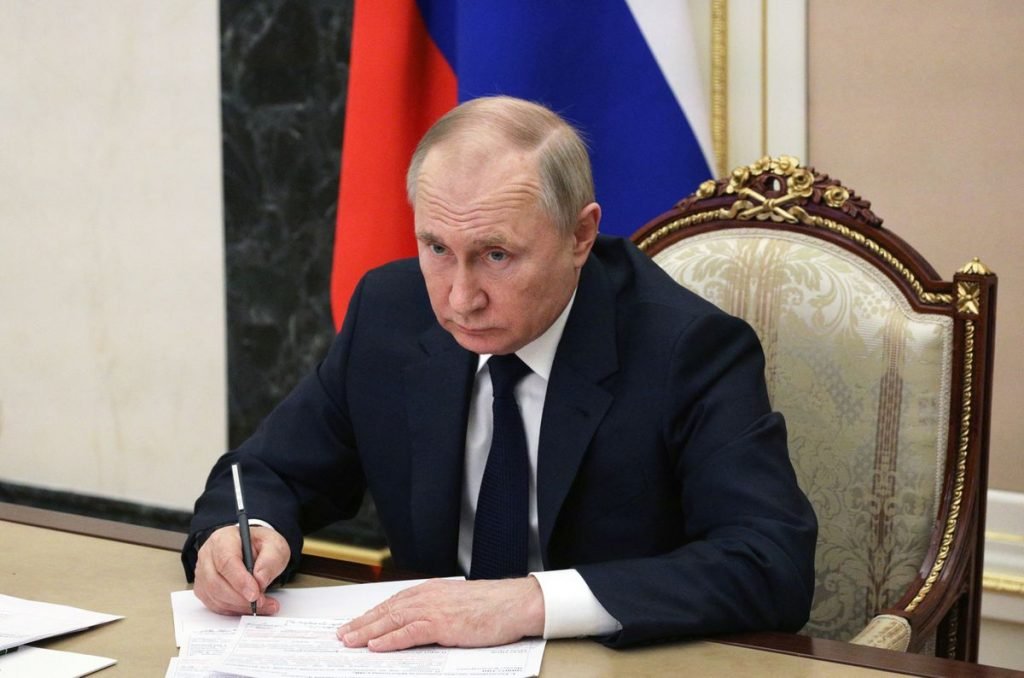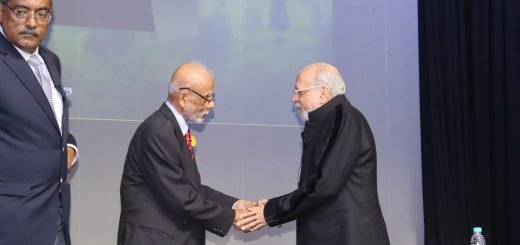Takeaways from the Ukraine-Russia crisis

It has been over a month that the Russia-Ukraine war is going on with no end in scene. Talks are going around in academic circles of anew Cold War dragging us into an “Old world” of arms race, espionage, rivalries- with clear examples in recent weeks like US approving 13.6 bn$ aid for Ukraine, Germany buying F35 fighter jets as well as planning to spend around 2% of its GDP on defence, Slovakia charging two suspects with spying for Russia etc. The US led West and pro-Russia camp are evidently involved in a proxy war with Ukraine as the battleground coupled with an “Information War” from the purview of media handles across the two camps.
The debates around deterrence, diplomacy and intensification of bloc politics have resurfaced again as fears of potential use of chemical or biological weapons by Russia whiff around with President Joe Biden administration setting up a “Tiger Team”, obituaries for diplomacy are flying around as diplomatic tools failed to prevent or anticipate the Russian invasion of Ukraine ; yet at the same time with earlier talks in Belarus or recently, Turkey offering to mediate between the warring parties etc, the hopes for ending the violence in war still impinge on diplomacy gaining ground again.
The implications for the global world order are yet to be seen, however certain takeaways from the crisis can improve our outlook towards any such future crises and simultaneously lead to better preparedness, if at all possible, for India, Asia and the world, at large.
Given, India’s neutrality or “tightrope balancing” amidst navigating the great power interests is rooted in “Realpolitik” aligned with its priorities to evacuate its own 20000 citizens in Ukraine safely as well as to secure its strategic interests- India needed security assurances from both sides for its “Operation Ganga” and at the same time, 60% of India’s defence requirements are met by Russia plus Moscow’s unparallel support at UNSC on issues of Kashmir & terrorism do not allow India to take a complete “black & white” stance during the UN resolutions. Whether Nehruvian non-alignment strategies are renewed or not, India continues to exercise its “strategic autonomy” despite its most US friendly government at the helm, given India’s hostile neighbourhood consisting of a terror state, Pakistan and expansionist China- both nuclear armed neighbours combined with an emerging Russia-China axis. Clearly, “Atmanirbhar” is the name of the game in geopolitics and Kautilya’s wisdom of Mandala Theory should not be overlooked.

As Ukraine has been a trial balloon for geopolitics, key takeaways for India in this scenario include fleet-footed diplomacy, pragmatism and professionalism in diplomacy, “de-Russification of the armed forces” along with genuine “indigenisation and long term vision of India’s defence technological and industrial base (DTIB)”. India is going in this direction with diversification of its defence imports involving new partners like USA, Israel, France etc. as well as Buy (Indian) and Buy & Make (Indian) categories, however it has to do more than changing labelling on the equipments.
Given India’s democratic credentials, continuous abstentions/neutrality on the international stage in matters related to territorial integrity, agency of an independent nation and most importantly, humanitarian crisis may backfire in future; especially when parallels are drawn between Ukraine and Taiwan, with China testing waters at the moment and its actions in South China Sea , Galwan valley clashes of 2020 at India’s borders etc. The Russia-Ukraine crisis has evidently presented the susceptibility of depending upon another nation for military equipment.
The conflict has renewed the significance of “hard power” (Europe has woken up from its slumber on criticality of defence and arguments raised earlier by US on heavylifting of defence expenditure by USA are a case in point); however major takeaway is to focus on future technology in armed combat. The Russia-Ukraine war (and also the Azerbaijan-Armenia conflict) has shown how reliance on traditional war-fighting machines will not win you battles. The Russian onslaught on Ukraine with hundreds of tanks, anti-tank guided missiles and armoured vehicles have proved futile, with a much smaller country with limited resources causing reverses to a military superpower. This has chiefly been accomplished through the use of armed drones, loitering munitions and stinger man-portable air defence systems that can easily take out fully equipped attack helicopters and other aircraft speedily in a cost-effective manner.
As Cold War type re-intensification of bloc politics ensues, a clear cut “battle of narratives” or the “weaponization of information” cannot be ignored. There is hardly any unfiltered information shaping opinions or independent observers in this conflict. One cannot confuse “visbility with transparency”. Between the moral binaries of Western Media vs Russian state-controlled media or Ukraine on its resistance vs Russia on its military gains, tech giants or Big Data companies have decided to take sides based on the perspective of their stakeholders & clearly, the West is winning this war. Twitter labelling its posts for being pro-Russian, Meta platforms to allow users in some nations to call for violence against Russians & President Putin, developing narratives of “Putinology” ( laying the entire blame for war and suffering on the obduracy of Vladimir Putin, cast as Russia’s new Czar) etc. all set a wrong precedent of “selective approach” as well as prevent serious reflections from Realist perspectives of the ongoing conflict. Also , virtue signalling by the West on India seeking to buy Russian oil, despite Europe continuing to buy and depend on Russian energy is a dangerous , yet same old trick of writing one-sided history books- if India changes its neutral stance in favour of the West, things will not change on the battleground anyway.

If China has been rightly criticised for weaponising trade and triggered moves to decoupling, resilient supply chains etc., the US and EU have gone much further in trying to expansively weaponise finance, investment and technology. The blow to globalisation and interdependence has been deep and the structures of the existing “international order” are collapsing further with the UN again demonstrating its impotency to establish peace. The Europeans themselves were bemoaning the decline of multilateralism due to “Trumpian style of politics”. Now Europe has joined America to deliver a major blow to multilateralism by imposing unprecedented sanctions on Russia. The takeaway here is that a whole ruling political, business and cultural class of a country can be treated as outlaws by the West if required.
These sanctions have complicated the food and energy markets worldwide with the poor nations in Africa and elsewhere taking the toll of unprecedented rise in prices of crude oil, wheat etc importing inflation of the war in Ukraine leading to depletion of forex reserves (current crisis in Sri Lanka points to it), depreciation in home currencies etc. It is time for India and overall, Asia to introspect on its overdependence on Western channels of finance, alternatives to dollar basket plus energy requirements and media representation of narratives. China is building its own alternatives to SWIFT and is attempting to “dedollarise” its economy which might come in handy for Russia at the moment.
Arms manufacturing companies are having a ball and this war is proving profitable for everyone- Europe has reunited firmly after Brexit crisis, US and its support for transatlantic alliance is looking stronger than ever despite Trumpian blows, China is hedging its bets to distract attention from its own actions in the Indo-Pacific as both US & Russia seek to woo Chinese political, diplomatic & economic support, Russia seeking its share on the global high table via aggression et al. The only losers are proving to be the hapless refugees from Ukraine and its own citizens
Comparisons abode for Ukraine crisis in theory by drawing on experience of Russian actions in 2008 (Georgia), 2014 (Crimea) etc. in the academic community by referring to Graham Allison’s “Spheres of Influence”, concerns alluding to NATO enlargement being the primary cause for Putin’s actions etc. However, scholars now need to introspect where exactly NATO went wrong and redefine new “strategic autonomy “for Europe to deal with future such crises, given its dependence on Russian oil-gas resources. US led West in the post-pandemic world order is already undergoing a “crisis of credibility” with the debacle in Afghanistan and the world is watching to earmark the “winners and losers” of this war. The elephant in the room of geopolitics continues to remain the theatre of Indo-Pacific and Ukraine war should not divert the global attention away from it- India needs to make sure of that.



















